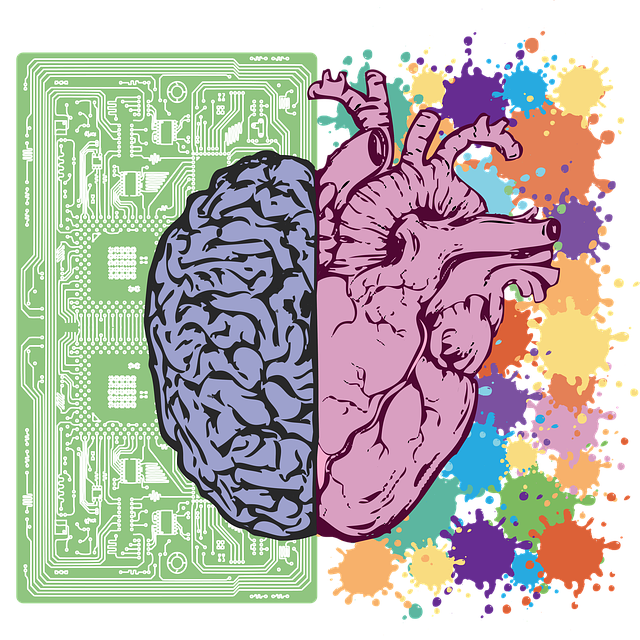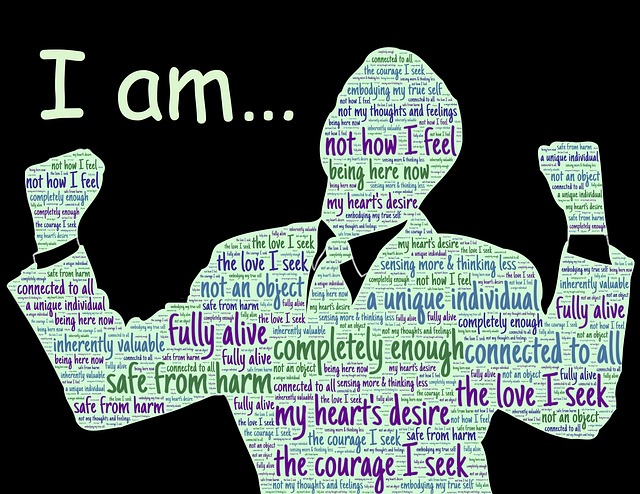Do you struggle in your workplace thinking about such questions
Why can’t I control my emotions?
Oh, God! My emotions are all over the place.
I don’t know how to handle my emotions.
Hold on, you are not alone in feeling this. Almost everyone struggles with such questions in one way or another.
This article will discuss how to process emotions in your daily life, which would help you work using appropriate emotional labor. Emotional labor requires handling a lot of emotional highs and lows.
In our lives, we go through different roles, like those of a son, father, mother, teacher, and grandparent. Each phase comes with lots of learning. The learning is based on the way you emotionally experienced each situation—becoming a father or losing a job.
Life becomes more purposeful if you know how much emotional labor is involved in your job. Emotional labor requires managing emotions in your daily life in order to fulfill job requirements.. The end result of regulating emotions is to remain peaceful and self-fulfilling.
What are Emotions?
I would like to explain it from the very basic concept of our nature’s evolution. Emotions are the only language that could help us survive and create species. The only goal of existence was to survive and procreate. Animals and humans are no different exceptions if a man does not become known to knowledge.
All emotions evolved as a result of biological development. Emotions have been created to meet the need for survival. A very interesting thing I read in the book “The changing mind by Daniel Levitin” is that emotion has the word motion, which is why we often hear people say they felt moved by experiencing deep emotion.
Emotions are feelings influenced by any event occurring outside or inside the body. E.g., touch and smell, are feelings provoked by outside factors, whereas hunger and thirst are feelings that occur inside.
You perceive and react to or respond to different events based on various emotions.
But I make it clear that research has claimed that emotion is different from mood. Emotions influence mood. The mood is the energy of the thought at a particular moment. The mood stays for a long time, whereas the arousal of emotions lasts for a few seconds to a few minutes.
Emotions motivate and arouse us to do something. Emotions provoke us to move to have shelter, eat food, and be protected from certain dangers. According to Daniel Levitin, emotions build our personalities and inspire us to do what is best for us.
Frans de Waal, a renowned biologist, says, “Focus the mind and prepare the body while leaving room for experience and judgment.”
Which part of the brain controls emotions?
The limbic (brain) system is the emotional nerve center. You would not be surprised to know that as the fetus’s cells divide and differentiate, the brain gets built in bits and pieces. At 20 weeks, the fetus can identify sound variations, and by listening to them, the developing brain starts wiring itself, forming neuronal connections.
The infant, may express an interest in a specific musical pattern heard in the womb. According to international research, ”the biochemistry of hormones that influence feelings, by Monica Butnariu ”, that emotions biochemically and categorized as pleasant and unpleasant.
Emotions are scaled as two parts of the pole—the north and the south pole. Stress and happiness Stress is a negative emotion, and the opposite of stress is happiness, which is a positive emotion. To know more, click on the link: how the brain processes emotion?
Which Hormone control feelings?
Emotions are received in the hypothalamus, which then acts on the pituitary gland.
The pituitary is a small-sized gland that sits at the base of the hypothalamus, produces hormones, and is responsible for many bodily functions.
Based on your environment, the hormones are chemicals secreted into the bloodstream as peptides, proteins, and steroids.
Because your immune system cannot get rid of hormonal influence, the intensity of emotions returns to physical health. That is the reason you must have heard that with mere two days of counseling, the severe old pain went away, as it was unresolved issues that took the form of pain.
According to 2019 research by Banat’s University of Agricultural Sciences and Veterinary Medicine, every ingredient in food is involved in digestion similarly every hormone is responsible for emotions. Emotional self-management is not possible without hormones. 50 different neuromediators are responsible for your behavior.
In brief, on hormones, Acetylcholine improves your memory and learning abilities. Dopamine assists you in developing projects, making decisions, exploring innovation, and organizing your movements. It also increases the urge and the feeling of pleasure. Lengthy projects benefit from noradrenaline. A low norepinephrine level is frequently associated with deep depression. Serotonin, the hormone of peace and compassion, allows for the restriction of anger and aggressive behavior.
Hormones come into contact with all of the organs of the body as they flow freely through the blood supervising digestion, reproduction and growth, sleep, mood, and other processes.
Our heart carries 40,000 neurons and is the main source of intelligence. It can control emotions 50 times better than the brain.
You must have come across this question at some point in your life.
Heart or brain – which is helpful in managing emotions?

However, you would be happier to know that the key to becoming emotionally intelligent is the cordial relationship between your heart and your emotional brain. The coordination between the heart and brain is the main factor that helps manage emotions.
Hormones are responsible for sleep, stimulate growth and development, and support mental health. Therefore, after the age of 45–50, when women usually drop their estrogen and testosterone levels, she may face osteoporosis due to menopause, insomnia, an irregular menstrual cycle, restlessness, and anxiety. A detailed checkup is required if you have any such conditions. According to MHA (Mental Health America , there is no contradiction to the statement:
“A healthy diet helps you to think clearly and makes you attentive.”
Emotions in Psychology

As mentioned in the above section, there are two types of emotions. Positive emotion and negative emotion. Positive emotions are strength, confidence, determination, willpower, etc. and negative emotions are fear, guilt, sadness, depression, etc.
Each person is different and unique from the others in countless ways. The mysterious sound heard by two people in the dark walking by a road can be interpreted differently based on their past experiences. One may consider it the presence of an animal and the other may take it as any person who is following them.
Both will experience different emotions one is not in fear and the other is in constant fear.
Emotions are cognitive constructions that depend on circumstances and interpretations. As per a new study published, “A theoretical approach to define and analyze emotions by Krishanu Kumar Das, emotion is a feeling that provides managerial drive to the other abilities of the mind – memory, intelligence, and physical activities – for their actions to be attained to pursue a particular goal.
Let us take an instance from childhood, when your parents motivated you to use strength to lift a heavy furniture piece. When they praised you, the next moment, you felt like the world’s best hero and drank one glass of milk by yourself.
Now, you are an adult, successful, dedicated engineer with the same emotional state, and you still want to hear praise from your parents, boss, teachers, etc. Our emotions are seeking motivation from others in one or another way to keep moving in life.
Let us discuss, how to become efficient at emotional labor. By this age, you have gone through numerous experiences and are impregnated with emotions.
The tricky thing for people with different professions is that people who are working as nurses, counselors, welfare workers, judges, or doctors are masking professionals they have to appear neutral, while people who are working as collection agents, or bouncers work by hiding positive emotions and have to show negative emotions. People in hospitality like tour guides and waiters work by hiding negative emotions and staying positive.
According to research done on emotional labor, there are two strategies in which people work. One is surface acting, the other is deep acting. Surface acting means hiding one’s actual feelings and expressions, whereas deep acting has positive outcomes and a higher rating of emotional well-being.
How can I improve my emotional skills at work?
How to handle difficult emotions?

Different working environments demand different roles, and that is where you end up compromising in communicating your inner emotions. In the end, you face an imbalance in life, work, and home.
To handle difficult emotions, there is a step-by-step procedure to extract the emotions that you’ve suppressed somewhere inside your heart or body.
Suppressing different emotions may halt your daily performance, and motivation to work and sometimes lead you to dive into a deep depression.
When questions like “how to handle difficult emotions”, pop up in your consciousness, then it is of utmost importance to finally recognize your inner voice because, deep down, when you were a child, by the age of 2 you have learned fear and anger. Since 20, in adolescence, you had been learning, emotion differentiation ,evaluating them and relating emotions.
I would be giving you 3 steps to follow and handle your emotions:
I highly appreciate that you are willing to work on your emotional health, and know that you are no less than a warrior. Because it is easy to judge and blame others for something gone wrong, but it takes heart to tackle your worst.
Self-care is the first step to changing yourself from the inside. After self-work, your clean thoughts and emotions would change your outer experience.
How to become emotionally stable?
Emotions are an intermediate thread in religion and spirituality. Sometimes people hide their feelings, thinking it would not be ok according to their religion.
The remedies are based on my experience when I was going through postpartum depression. The activities will help you with questions that people usually ask.
How can I stop being emotionally sensitive?
How can I control my emotions?
The steps are:
- Write about your emotions.
Writing is the purest form of process to self-expression. Write about your worst experience when you felt alone and did not have an ear to listen.
Believe me, writing about your experience and evaluating it without judging anyone is the best way to seek answers from within. Afterward, tear down the paper and throw it away or burn it. Visualize that you have finally released your worst nightmare from your emotional and physical domain.
2. Start doing exercise or yoga.
It has been researched and published in the National Library of Medicine, on the Health Impacts of Yoga and Pranayama: A State-of-the-Art Review. All the Vedas and ancient scriptures like the Bhagwat Gita mention the importance of yoga and breathing techniques like pranayama on mental health. Yoga brings mental awareness, physical strength, and affluence. I started with a daily walk with my own company or a company that I felt was good to share.
3. Meditation
Meditation is a state of mind when you reach a level of zero thought. According to the Harvard Gazette, mindfulness meditation changed the amygdala pattern in the MRI of a person who learned and was doing meditation. The Amygdala is responsible for regulating emotions like fear and aggression.
Meditation has a powerful impact on bringing your focus to yourself and changing the perceptions of your environment. It brings all your attention, and thoughts to the present moment, with no regret left from the past and no fear of the future. Sadhguru, from the Isha Foundation, devised Isha kriya, a guided meditation, which has had a drastic impact on the world by bringing meditation practice to young people.
If you find it hard to focus during meditation, then try writing one single sentence to a universe that is responsible for everyone’s existence. Thank you, universe /divine/, or your deity/ your teacher’s name), for guiding me through life.
These are the three main initial ways that would definitely help you to overcome the negative emotional outburst. One last thing, you are the only one in this whole universe who could help yourself come out of any situation. The best way is to shift your focus immediately toward the solution and work on spiritual self-care.
I hope this article finds you in good health, and if you have any questions, feel free to write in the comment box. I would be happy to answer your queries.


Pingback: 7 Easy ways to increase your Vibrations will change your life -
Pingback: Don't Let Your Thoughts Fool You: I WANT TO HELP PEOPLE